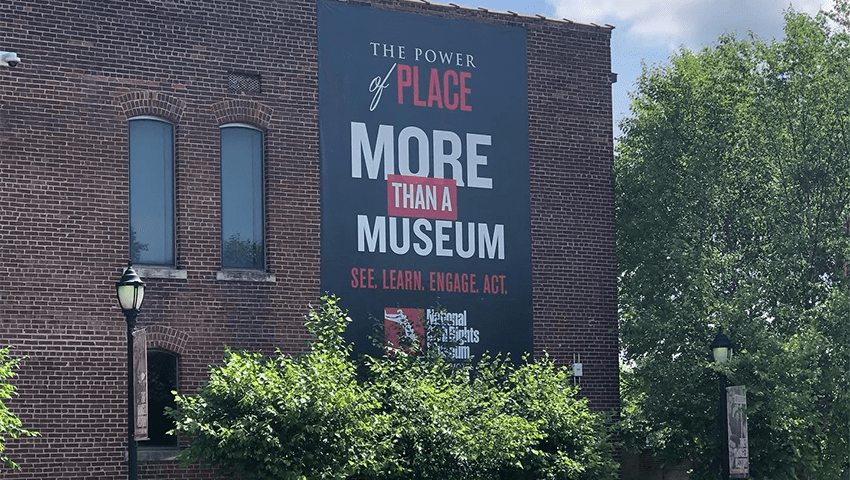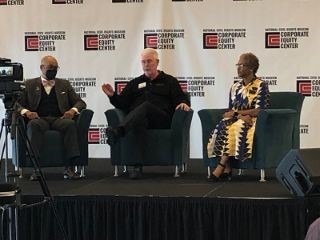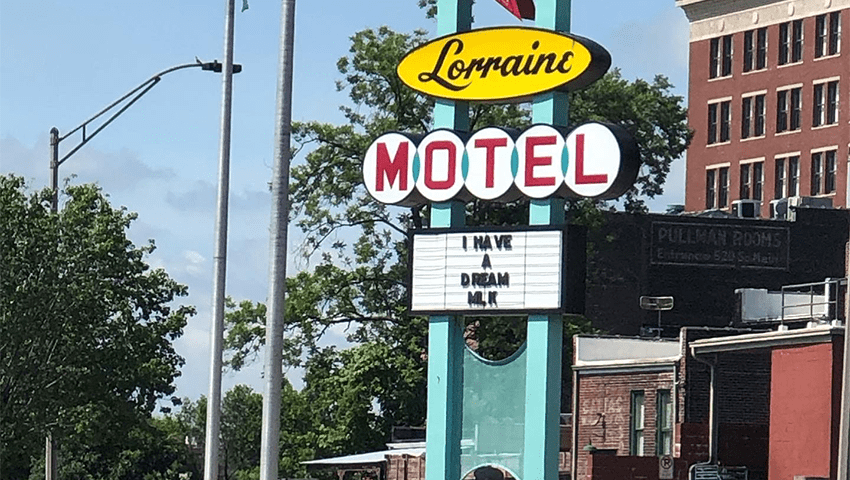A new collaborative program based in Memphis, Tennessee, could do more than bring executives together. The C-Suite Initiative from National Civil Rights Museum (NCRM) walks leaders through a curriculum designed to heighten awareness of racial inequities with the goal of increasing representation of Black executives at companies of all types.
“It is important that executives experience the history told via the specially curated museum tour that heightens the potential for deeper discussions and commitments for resolutions that have typically blocked advancement of Black executives to C-suite and senior executive leadership roles,” said Faith Morris, NCRM chief marketing and external affairs officer. Morris was inducted into Smart Meetings Hall of Fame in 2021.
By taking a closer look at the journey from the beginning of the resistance during slavery, through the Civil War and Reconstruction, the rise of Jim Crow, and the seminal events of the late 20th century that inspired people around the world to stand up for equality, the program puts the state of current diversity, equity and inclusion in context.

The C-Suite Initiative is geared to ensure the most senior corporate decision-makers are presented with the facts, experiences and tools needed to make equitable decisions that change the systemic landscape of the hiring and advancement of Blacks. The program helps to provide guiding goals to drive progress, effectiveness and ongoing tangible outcomes for the inclusion of Black representation and senior leadership in C-suite positions.
Read More: What Meeting Profs Get Wrong About DEI—and How to Start Fixing It
“The transformation of representation will only occur with intentionality and boldness and The C-Suite Initiative is intended to provide the most senior leaders of organizations the context and tools to deepen your resolve to drive systemic change from their unique seat of power,” said Dr. Russell Wigginton, NCRM president in a statement.
Pioneering Participants
The pilot began last November with executives from First Horizon Corporation. “The First Horizon leadership team is honored to be the first executive group to officially participate in NCRM’s Corporate Equity Center’s leadership program,” said Bryan Jordan, president and CEO of First Horizon Corporation, in a statement. “Through this experience, our team gained additional information and tools that can be used to address inequities within talent management processes and continue to build a diverse team at every level in our organization.”

President and CEO; Veda Ajamu, Managing Director, NCRM DEI Initiatives and Community Engagement.
The program is part of a new Corporate Equity Center initiative funded by a $5 million investment from AutoZone. It includes NCRM’s Unpacking Racism for Action education designed to uncover implicit bias, structural and institutional racism to increase awareness and knowledge of the many manifestations of racism.
The course will build skills and nurture willingness to confront issues of racism as they arise in personal and professional settings and co-create a supportive and accountable community for ongoing learning and action. Participants will learn, discuss and reflect on how inequities filter into decisions that are barriers to Black advancement at work.
“AutoZone’s early support is a direct reflection of both our commitment and responsibility to push for more diverse, equitable, and inclusive environments everywhere,” said AutoZone Chairman, President and CEO Bill Rhodes.
Space for Learning
Smart Meetings visited with Faith at the NCRM in June to check out the meeting space and programming and saw first-hand the powerful messaging being delivered at the site where Martin Luther King was assassinated at The Lorraine Motel.
“It was impossible for a world witnessing the murder of George Floyd in 2020, and national protests and social unrest that followed, for the museum to not emphasize the historical root causes of civil rights issues in America that block to the kind of change that enhances and saves Black lives today,” said Morris.
“The NCRM is a site of conscience, a power of place. The storytelling here, grounded in historical truths that have shaped Black life in America, is worth exposure to everyone to accelerate the understanding of how racism and microaggression started more than 400 years ago and how these systemic issues create barriers for advancement today,” she added.




